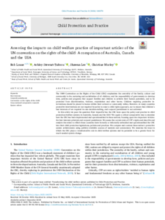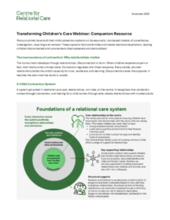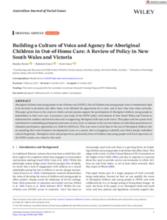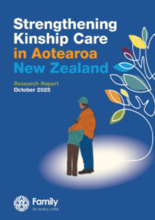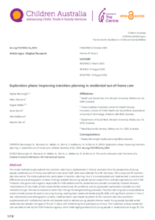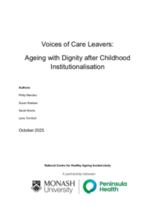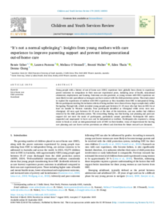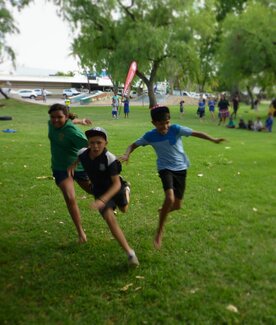

Displaying 1 - 10 of 674
The 1989 Convention on the Rights of the Child (CRC) affirms the importance of family, culture, and community in children’s lives and obligates governments to support families and protect children from discrimination, violence, and exploitation, yet many countries still lack policies that require a child-rights approach, prioritize best interests in decision-making, or prohibit corporal punishment. This article critically examines how effectively Australia, Canada, and the United States have implemented key CRC principles—particularly best interests and corporal punishment—by comparing their child protection policies, legislation, and practices to assess the Convention’s influence and its potential to drive broader system reform.
On November 13, 2025, the Transforming Children's Care Collaborative hosted a webinar to explore insights from two Australian initi
On November 12, the Transforming Children's Care Collaborative hosted a webinar to explore insights from two Australian initiatives
This paper examines how effectively out-of-home care systems in New South Wales and Victoria, Austalia support the participation of Aboriginal children and young people in decisions about their own care. It highlights systemic barriers and calls for structural reforms to embed Aboriginal child and youth voices at every level, rather than relying solely on individual practitioners to promote participation.
This article highlights New Zealand’s kinship care movement, where relatives or close family friends step in to care for children when parents are unable to.
This report presents findings from a small-scale qualitative study commissioned by Family for Every Child, examining how kinship care is understood and experienced in Aotearoa New Zealand. It explores the challenges faced by kinship carers and their support needs.
This mixed-methods study examined transition planning in Victoria, Australia, from the perspectives of young people, residential out-of-home care staff, and cross-sector workers, revealing that while multiple organizations support youth—particularly Child Protection and residential care providers—responsibilities and participation methods vary, with young people often involved indirectly rather than through formal goal-setting.
This report explores how childhood institutional care negatively shapes health, well‑being, housing, and social outcomes well into older adulthood for people now aged 50 and above in Australia. It argues for a shift away from institutional aged care and towards trauma‑informed, person‑centered home or community care — designed with and for care leavers — to uphold dignity and improve long-term quality of life.
This study explored the experiences of 11 young mothers in Western Australia with out-of-home care (OHC) backgrounds, highlighting that leaving care planning and post-care support often failed to meet their needs, particularly around parenting. Participants felt underprepared and under-supported, but expressed determination to break cycles of OHC, pointing to the need for improved services and future research.

